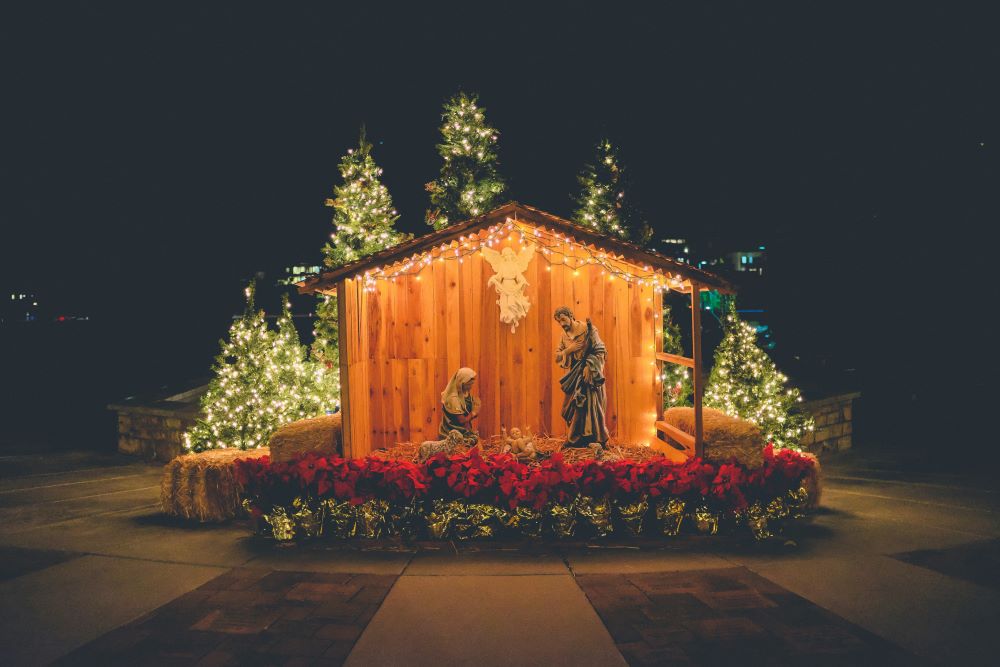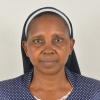
(Unsplash/Kenny Eliason)
I associate the Advent season with the unfolding of a mystery born and raised in the ordinariness of life. Advent is a quiet season whose fruits become visible at Christmas with the birth of Jesus. As we wait for the birth of Christ, like any other waiting, days can be few yet seem long depending on what we engage with while waiting. Understanding the reason for our waiting can help us remain patient. Deciding how to wait is equally important.
Jesus' coming to share in our humanity commemorates a great event in our salvation story. That God will dwell with us and bring about our redemption should provoke in us an action informed by our decision on how we want him to find us.
Growing up, I experienced my mother as a great host. We expected visitors at different times, and I could see the energy she put into it. This involved not only my immediate family but also the neighbors and anyone else who could help make the guests' time with us comfortable. This mainly happened when a "highly esteemed" visitor was coming.
We started by ensuring the visitor's favorite food was available. The children were charged with cleaning the house, including removing cobwebs and tidying the compound that extended to clearing the bushes. We also made sure our best clothes ("Sunday best") were ready, even if it wasn't a Sunday. It was an event to have such a visitor. Everyone made efforts to do their part thoroughly so our visitor got the best. Some duties, like preparing fodder for the animals, took place the previous day. As the day drew close, there was constant communication with the guest to confirm their arrival. Additionally, a few neighbors formed part of the "waiting team"; my mother would invite them to welcome our visitor. Her visitors became communal.
All this was done to ensure that when the visitor arrived, we could be present with undivided attention. This suggests that before the visitor comes, a lot goes on in the background, and that a quality visit does not just happen. It requires our entire being.
Imagine all these preparations for an earthly person. How much more should we do for the coming of Jesus, our Redeemer? This entails beginning to prepare ourselves at a personal level and extending that to those around us and the wider society. The kind of effort my mother put into waiting for her visitors gives me a glimpse of the experience we should have when waiting for Jesus' birth. Jesus comes for our redemption; he brings love, joy and peace.
That God will dwell with us and bring about our redemption should provoke in us an action informed by our decision on how we want him to find us.
Today, the world needs these gifts more than ever. There is much unrest, as we think of natural calamities, as has happened in Florida with storms and flash floods in Spain. Equally, war is ravaging our world. War has become a way of life. This raises in me a question: How many lives must be lost for the world's leaders to intervene? It is difficult to watch people displaced from their natural habitats, women and children left widowed and orphaned, with nowhere to call home. Many times, I have asked myself: Does anything good happen in our society anymore? These are traumatic situations, and at such times, only God can satisfy our quest for hope. Therefore, Jesus' coming demands a deeper preparation that focuses on both our spiritual and physical well-being.
If what took place in my family when waiting for a visitor is any indication, I figure a list of things to do as we wait for Jesus' coming would look something like this: We would keep remembering the day of the visitor's coming, in this case Christmas. Therefore, all our actions would gravitate toward making that day as special as it can be. Essentially, we would mark that day on the calendar. Likewise, we would need to reflect on our relationship with Christ and determine the most befitting manner in which to prepare for him and our reception. Mother Mary, when waiting for the birth of our Lord, went and stayed with her cousin Elizabeth during her expectant moment (Luke 1:39, 56). Similarly, John the Baptist prepared people ready to meet the Lord (John 1:6-8) in fulfillment of the prophecy of Isaiah (40:3).
As we notice, cleanliness is important when waiting for a visitor. In this regard, we believe that our heart is the dwelling place for God, hence the space we need to tidy up for Jesus' coming. This entails making a meaningful turnaround in our spiritual life. Some might choose to go for the sacrament of reconciliation, while others might decide to make peace with people with whom they have not been on good terms, among other personal choices. This way, we can create a welcoming environment for Jesus.
The sense of being welcoming extends to the external world, analogous to the way we invite our neighbors when a visitor is coming. Therefore, Advent could serve as a time of renewal and enlarging the family of the faithful. This entails making Christ known to those who have not yet known him, affirming those strong in faith, and encouraging those who have believed in Christ but have fallen back. It is a time to talk about Christ's birth and the importance of his coming to live with us. By its nature, Advent is a period to tell the story of Jesus.
As we prepare for the coming of Christ, I remember that he is a visitor with a difference. He does not come as the visitor my mother would be waiting for; he comes as a baby, armless and vulnerable, at the mercy of society. At this thought, my heart goes to the children of our world today. What kind of world is Jesus coming into? There is so much violence in the world nowadays. I think of the children in Gaza, Lebanon, Israel, Ukraine and Russia, among other parts of the world troubled by war and political instability. The impact of climate change is also hitting hard as we witness floods and storms disrupting the normal flow of life.
This makes it appear that baby Jesus might not find anyone home to receive him at his birth. In a way, history seems to repeat itself: " … no room in the inn" (Luke 2:7). Was this not the case over 2,000 ago? This Advent calls us to make the world a better place to live for all, especially the children, people with special needs and the economically vulnerable groups who suffer most when hardship prevails.
As Jesus comes to bring joy to the world, it dawns on me that God is inviting us to consider children in our life choices. Children represent the future; by considering their needs in all development agendas, we automatically build a good future for all.





